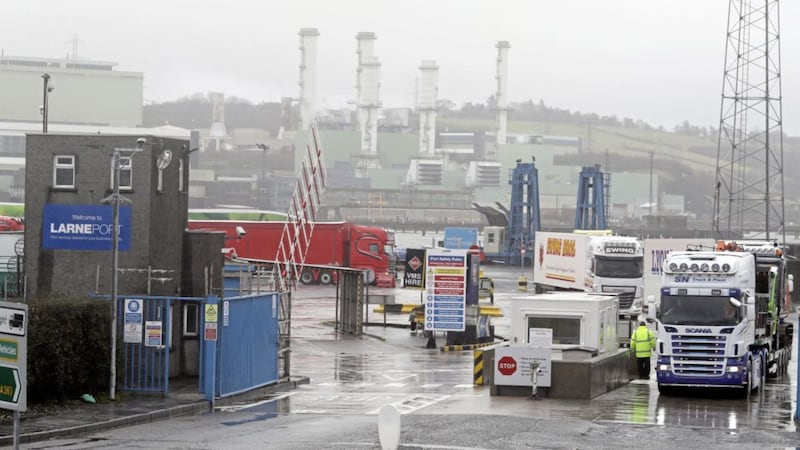GIVEN the events of the last few weeks, it’s fair to say that Northern Ireland has some hurdles to overcome in order avail of its unique position as a frictionless trading gateway to both Great Britain and the EU.
Reports of supply chain disruption, near-empty supermarket shelves, bans on seeds, potatoes and even carrots are just some of the issues that are becoming apparent as businesses navigate the significant changes to the trading environment brought about by the UK’s departure from the EU.
The free trade arrangement, formally known as the Trade and Cooperation Agreement, reached by the EU and UK on Christmas Eve, runs to some 1,200 pages but does not govern trade in goods between Northern Ireland and the EU. Nor does it cover trade between Great Britain and Northern Ireland. That’s covered by the Northern Ireland Protocol. And with it comes quite complex customs and VAT rules and procedures.
Given the magnitude of change that Brexit has brought, not least for Northern Ireland, it’s not surprising that businesses are struggling. In theory, there is free trade, but customs formalities are proving hugely cumbersome for many traders.
The protocol was designed to avoid a hard border on the island of Ireland. But as businesses have quickly realised, this, in particular, has consequences for goods coming into Northern Ireland from Great Britain. While customs paperwork and regulatory checks are not required for goods moving between between Northern Ireland and Ireland, the EU needs to protect its border from goods of a sub-standard getting through.
This means Northern Ireland must continue to follow EU safety rules and goods, particularly agri-food products arriving in Northern Ireland from England, Scotland or Wales have to be checked to ensure they meet the strict EU rules and standards. Customs declarations must also accompany goods moving from Great Britain into Northern Ireland.
To keep products flowing, supermarkets and certain trusted suppliers have been given an initial three month “grace-period” on checks for animal products like cheese and milk and a six-month waiver for checks on fresh meat where these goods enter Northern Ireland from Great Britain. Given the turmoil at ports in recent weeks, the UK Cabinet Minister Michael Gove is calling for these grace periods to be extended to January 2023.
Despite this, many retailers and hauliers have been shocked by the avalanche of additional paperwork, and new systems that they need to navigate in order to keep goods moving. Over half of businesses that we surveyed have reported disruption to their supply chains and delays in getting products caused by issues with paperwork – a requirement that seems to have taken some by surprise.
Issues are not limited to supermarket supplies but have extended to organic produce in recent weeks.
Food produce undergoes a range of processes, certification and checks on entry to Northern Ireland from GB but organic food in particular attracts another layer of difficulty. Every organic product type that arrives in Northern Ireland from GB must have a Certificate of Inspection, which involves the exporter making an entry on an EU system known as Traces NT.
They have to input details such as weight, origin and whether any of the goods are high risk. For a delivery going to stores that will involve numerous individual entries. Those details then need to be verified and approved by a certification body. A certified importer must confirm the goods have been received upon arrival into Northern Ireland.
Shipments are generally made up of tens and hundreds of products, so this generates a large administrative burden. If a mistake is made, the consignment could get held up at the port. The three-month grace period does extend to organic goods from GB being imported into Northern Ireland but only applies to supermarkets and trusted suppliers for goods intended for sale here.
Garden centre owners have also expressed their dismay with the new arrangements. Northern Ireland has remained in the EU's plant health system, meaning Northern Ireland must apply EU rules on all horticulture products with some plants requiring a health certificate before they can enter Northern Ireland. This the EU says is to prevent soil diseases entering the EU via the Irish border.
At the moment, the issues seem insurmountable; but systems and procedures will bed down and problems will be ironed out in time. The EU and UK are holding further talks as to the practical implementation of the Protocol.
For businesses at the coal face, they continue to keenly feel the effects and the costs of the new complexities.
And for many, the benefits of the gateway to Great Britain and EU are at the moment hard to depict.
:: Naomi Clohisey is public policy officer at Chartered Accountants Ireland







